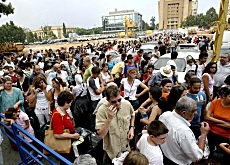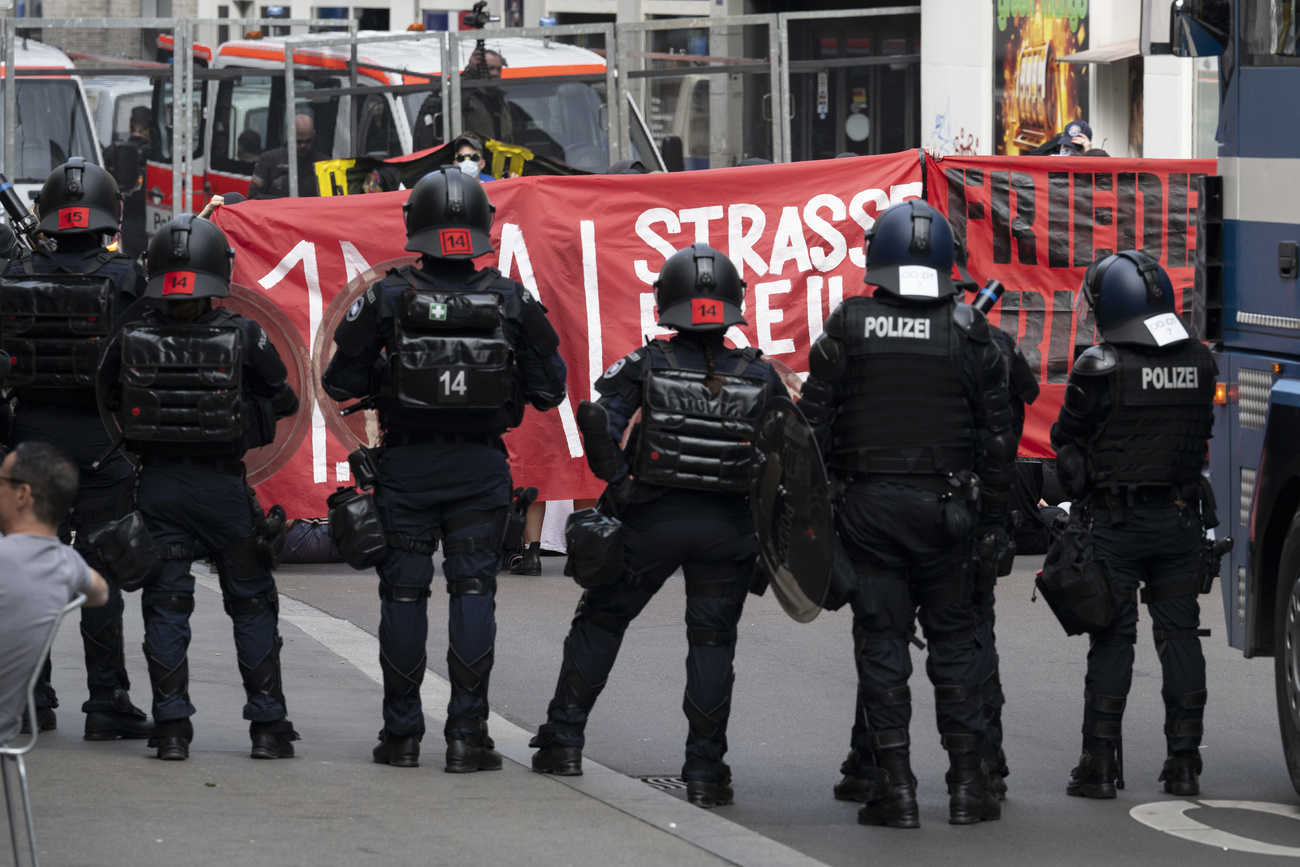Swiss join exodus from Lebanon

Switzerland's foreign ministry has confirmed that Swiss nationals are among the foreigners being evacuated from Beirut on board ferries bound for Cyprus.
The ministry said on Monday that it was seeking other ways of extricating remaining Swiss citizens, either by sea or by road to Syria, as Israeli aeroplanes continued their bombardment of Lebanon’s infrastructure.
Thousands of foreigners are still waiting to leave amid ongoing efforts by overseas governments to evacuate their citizens.
With many roads impassable and the airport disabled, European governments have been chartering ships to pull their nationals out of the Lebanese capital.
The Swiss foreign ministry said more nationals should be able to leave Lebanon by sea “in the coming hours and days” thanks to collaboration with the French and the Italians.
Most ships are headed for Cyprus, where hundreds of foreigners – including tourists and dual nationals – have been arriving since Israel began its offensive last week in response to attacks from Hezbollah fighters. Others have escaped by road into neighbouring Syria.
Besieged
Embassies and foreign organisations in Beirut have been besieged by foreigners, seeking to be evacuated.
The Swiss ambassador in Beirut, François Barras, told Swiss public radio on Monday that hundreds of Swiss citizens wanted to escape Lebanon. He said that most of these people were dual nationals who only wanted to leave temporarily, but warned it would not be possible to evacuate all of them for a few days.
Of particular concern were 55 Swiss citizens trapped in southern Lebanon, where the Islamic Hezbollah militants – Israel’s real targets – are firing rockets at the port of Haifa and other areas of northern Israel.
According to Barras, the first “refugees” from the area have already arrived at the Swiss embassy. He added some of them – those living near the port of Tyre – had lost “everything”.
A German pastor in the capital told the Swiss News Agency that many foreigners, including several Swiss, had sought help in his evangelical community.
“Many are panicking and want to get out of Lebanon as quickly as possible,” said Uwe Weltzien, adding that several people were clearly traumatised by their experiences.
The Swiss foreign ministry is attempting to deal with the situation by sending extra staff to Lebanon to help the Swiss still there. Besides the maritime route, it is also considering sending more people by road to Syria.
Syria
According to the latest information from the ministry, around 136 Swiss nationals were evacuated to Syria over the weekend, and hundreds more are in hotels in Beirut awaiting transport out of the country.
Most foreign embassies, including that of Switzerland, have been advising their nationals to stay where they are until safe passage can be arranged for them.
Despite calls by the United Nations for a ceasefire, Hezbollah militants were on Monday stepping up both their attacks and their rhetoric, while Israel continued its bombardment and denied media reports that it had any plans to halt the offensive.
Israel also said it was too soon to consider a UN plan to send a multinational security force to Lebanon.
swissinfo with agencies
The fighting – the worst since Israel invaded southern Lebanon in 1982 – was triggered after Hezbollah seized two Israeli soldiers in a cross-border raid last week.
The Islamic militant movement is part of the Lebanese government and is backed by Syria and Iran.
So far more than 200 people in Lebanon – most civilians – have been killed, and much of the country’s infrastructure destroyed, including Beirut airport and the motorway to Damascus.
Twenty-four Israelis have died, including 12 civilians hit by Hezbollah rocket attacks.
The Swiss foreign ministry says there are 838 Swiss nationals registered as resident in Lebanon, of which 713 hold dual nationality.
The number of tourists is not clear, but could amount to “several hundred”.
Family members can contact the foreign ministry for further information on +41 31 324 98 08.

In compliance with the JTI standards
More: SWI swissinfo.ch certified by the Journalism Trust Initiative










You can find an overview of ongoing debates with our journalists here . Please join us!
If you want to start a conversation about a topic raised in this article or want to report factual errors, email us at english@swissinfo.ch.